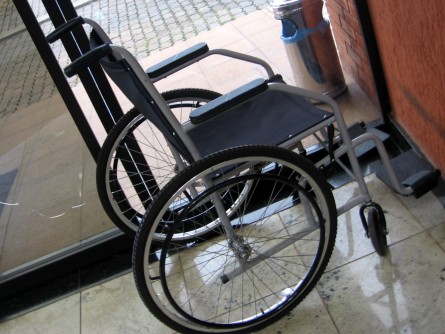In short I was told: No you can’t change dorms, there are too many students right now. Pressing charges would be useless, he’s about to graduate, there’s not much we can do. Are you SURE it was rape? It might have just been a bad hookup. . . . You should forgive and forget. . . . They told me: We can report your rape as a statistic, you know for records, but I don’t recommend that you go through a disciplinary hearing. It would be you, a faculty advisor of your choice, him, and a faculty advisor of his choice in a room where you would be trying to prove that he raped you. You have no physical evidence, it wouldn’t get you very far to do this.
Epifano eventually revealed that she was having suicidal thoughts, was sent to a local hospital, was told she couldn't return to campus. When she was allowed to, she was told she couldn't study abroad or take classes at other campuses as she had originally planned because Amherst wanted to keep an eye on her. She eventually decided to simply withdraw.
Needless to say, school administrators at Amherst and elsewhere have been shocked by this incident. It has started yet another round of discussions about "changing campus culture," as the Chronicle of Higher Education describes it. "Amherst officials acknowledge a need for better integration in student affairs, particularly between the dean of students and the counseling and health centers."
A New York Times article about the episode explained the actions of the new Amherst president, Carolyn A. (Biddy) Martin. "She made more administrative changes, and said in an interview in her office . . . that she is inclined to make more still, like having experts -- rather than shifting panels of professors and students -- adjudicate complaints."
It is astounding to me that people who read Epifano's account can conclude that these are the steps that should be taken. The problem here is that Amherst administrators (yes, even the sexual assault counselors who are also employed by the college) have an incentive to cover up wrongdoing on campus. They don't want bad publicity for the school. They don't want the school to be subject to lawsuits by rape victims. So much of what college administrators spend their time doing these days is covering their own behinds.
But even if you had the most well-meaning people as administrators, people who didn't care about their school's reputation, they still shouldn't be in charge of handling sexual assault accusations.
Angie Epifano's first call should have been to the police. Usually when I think about advice I plan to offer my children about college, it is about what classes they should take. But I feel certain that unless things change significantly in the next decade, I will have to offer another piece of advice too. If, God forbid, anything happens to you on a college campus -- if you are a victim of a crime -- do not, I repeat, do not, contact a college administrator or campus security or some counselor. Call the police.
Police officers are the people that we, as a society, train to deal with these matters. They collect evidence and statements from witnesses. Then we have these other people called prosecutors who will help determine whether there is enough evidence to press charges. (The idea that a sexual assault counselor at Amherst would even delve into this topic is absurd.) Yet somehow I don't imagine that when President Martin says she will have more "experts" involved in the process, she means that these matters will be left to the authorities. Instead she will bring in more counselors and more administrators "trained" to deal with these matters. They've probably written dissertations on them. But that is not what Amherst needs. And it's not what any of our college campuses need.
We are often told that colleges are like "bubbles." They are cushioned from the harsh realities of the outside world. To some extent perhaps that's true. But the people on college campuses are not all angels. Bad things can happen in college. And colleges are not set up to be small utopian societies that exist independently from the rest of the country. They are subject to the law of the land and it's about time that college administrators acknowledge that they are no more qualified to deal with crime than someone who has watched a few episodes of Law & Order.





